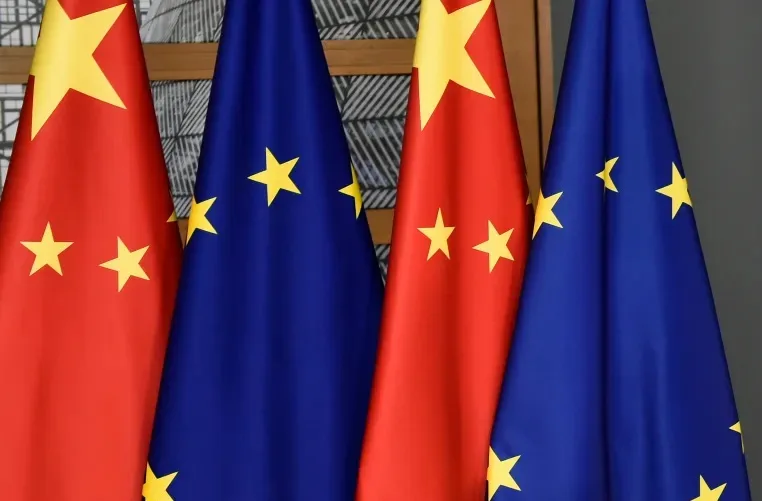Chinese investment in Europe last year dropped to the lowest in 13 years since 2010, according to an annual report published on June 6 jointly by independent research provider Rhodium Group and German think tank e Mercator Institute for China Studies (MERICS).
As per the report, Chinese direct investment (FDI) in Europe (defined here as the EU-27+UK) slipped again to EUR 6.8 billion last year (2023), from EUR 7.1 billion in 2022, and it was the lowest level since 2010.
The report shows that Chinese corporate investors faced challenges and uncertainties last year from a mix of political and economic factors in Europe and globally, while uncertainty about the global economy impacted the investment environment for Chinese firms, amid rising geopolitical tensions that include the protracted war in Ukraine and new conflict in the Middle East.
China’s lacklustre growth in the post-Covid period has weakened the financial footing of many Chinese firms, as per the report.
Commenting on the declining Chinese FDI, Cheng Cheng-ping, a professor at Taiwan’s National Yunlin University of Science and Technology, told The Epoch Times, “From this [investment] figure, we can certainly see that China’s economic situation is very bad.”
“Since 2023, China’s economy has taken a turn for the worse. Although the official GDP [gross domestic product] growth rate is about 5 percent, the real situation is very bad, and its export situation is also very bad, so its total foreign investment is also declining,” the professor added.
“Strict capital controls and the depreciation of the Chinese yuan (CNY) also disincentivized outbound investment. The European Union (EU) is seeking to recalibrate the EU-China relationship and strike a balance between de-risking and cooperation, a shift that has stoked the uncertainties facing potential Chinese investors. This all happened amidst enhanced oversight of foreign investment as economic security has risen up the agendas of European governments,” the report read.
“In 2023, Chinese investment in the EU and the UK (hereafter referred to collectively as “Europe”) slipped further, though only marginally, from EUR 7.1 billion in 2022 to EUR 6.8 billion. This was the lowest level of investment seen since 2010,” said the report, adding that at the same time, an uptick in newly announced greenfield investments suggests that the precipitous decline in Chinese investment since 2016 may be levelling off, as investment in the electric vehicle (EV) sector continues.
As per the report, Chinese FDI in Europe remains heavily concentrated.
“As overall investment levels have come down, the relative importance of individual deals and investors has increased,” said the report, adding that the top five Chinese investors consistently made up two thirds of all Chinese investment into Europe between 2021 and 2023, compared to 45 percent in 2020.
The MERICS report also finds that the value of mergers and acquisitions (M&A) fell by 58 percent to just EUR 1.5 billion, and China’s economic difficulties and strict capital controls, alongside increased scrutiny of foreign investment into Europe, contributed to the fall in M&A deals.
The share of greenfield investment shot up to 78 percent in 2023, a further rise from 51 percent in 2022, said the report adding that top greenfield projects in 2023 came from private firms CATL, AESC and Huayou Cobalt, who invested in battery plants in Hungary, Germany and France.
According to Investopedia, a greenfield investment is a type of foreign direct investment (FDI) in which a parent company creates a subsidiary in a different country, building its operations from the ground up, and in addition to the construction of new production facilities, these projects can also include the building of new distribution hubs, offices, and living quarters.
MERICS, in its latest report, said EV (electric vehicle) driven investments propel Hungary as the top destination as Hungary received 44 percent of all Chinese FDI in Europe in 2023, benefitting from the surge in EV investments.
Over two thirds (69 percent) of Chinese FDI were made in the EV sector in 2023, up from 41 percent in 2022, the report added.
MERICS and Rhodium Group have found that Chinese direct investment is increasingly moving both up- and downstream along the EV value chain as Chinese suppliers of battery inputs like cathodes and anodes have announced two greenfield projects worth over a billion euros each, and which are expected to break ground in 2024, while BYD has announced plans to produce EVs in Hungary by 2026.
While Europe’s healthcare, consumer products, entertainment, and information and communication technology (ICT) sectors continue to appeal to Chinese investors, the geographical and sectoral scope of investment screening regimes in Europe keeps expanding as the European Union (EU) is working on greater consistency and a wider remit for screening regulations, said the report. It said Chinese firms looking to invest in strategic sectors in Europe can expect to be the target of more regulatory scrutiny.
The Epoch Times reported, quoting Wang Guo-chen, an assistant researcher at the Chung-Hua Institution for Economic Research in Taiwan, that China’s direct investment in Europe is also falling because of geopolitical security.
“Europe and the United States are now strengthening national security review of foreign investment. This has been the trend in recent years, and it is becoming more and more strict,” Wang Guo-chen told the publication, adding that China’s FDI in Europe has been hampered since May 2021 when the European Parliament froze the EU–China Comprehensive Agreement on Investment (CAI), which was supposed to grant EU investors a greater level of access to China’s market.
As per the report, the fall in Chinese direct investment in Europe will continue to be cushioned by ongoing investment in the EV sector, but a substantial uptick is not expected. Instead, investment is likely to remain at low levels due to the weak financial positions of Chinese firms and increased government oversight in Europe.
Chinese firms must also weigh up market opportunities in Europe against the backdrop of growing EU-China trade tensions, the think tank suggests in the report.


